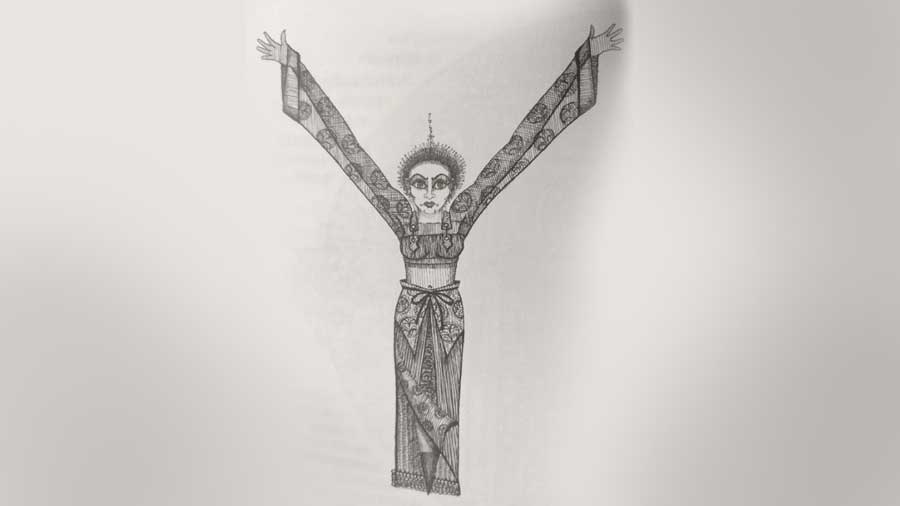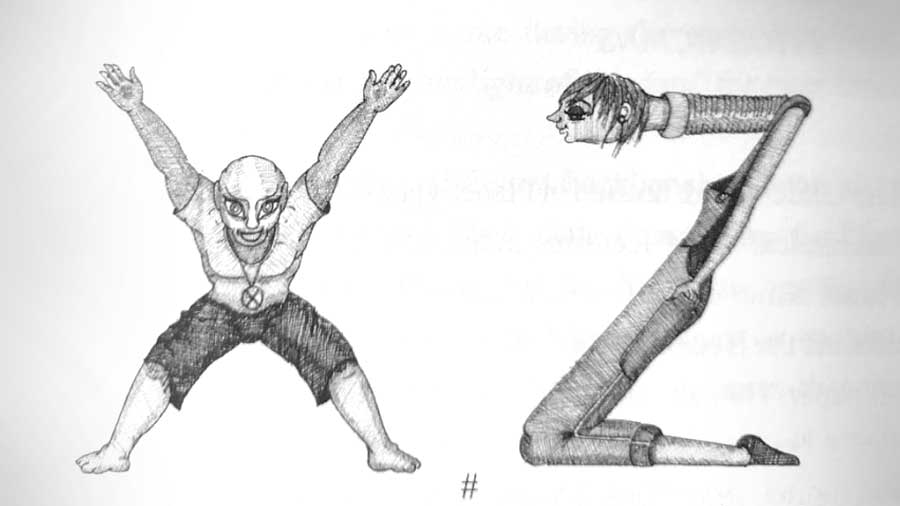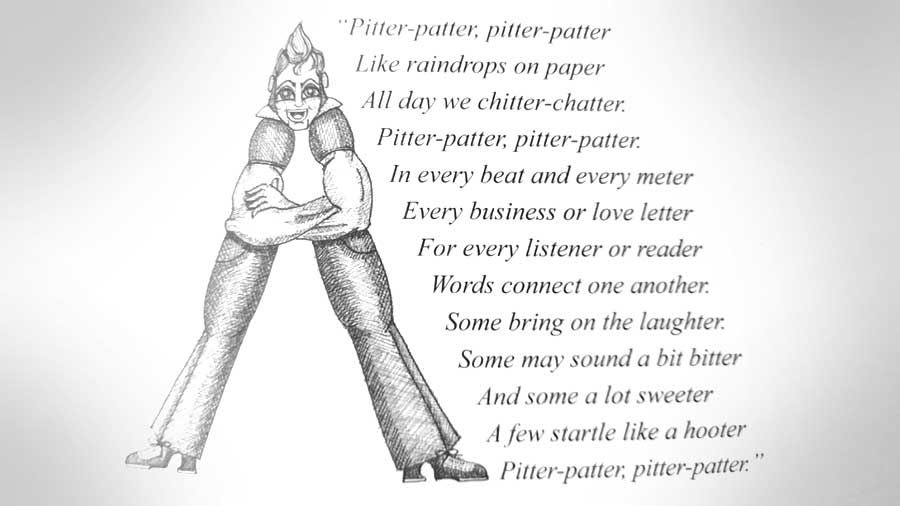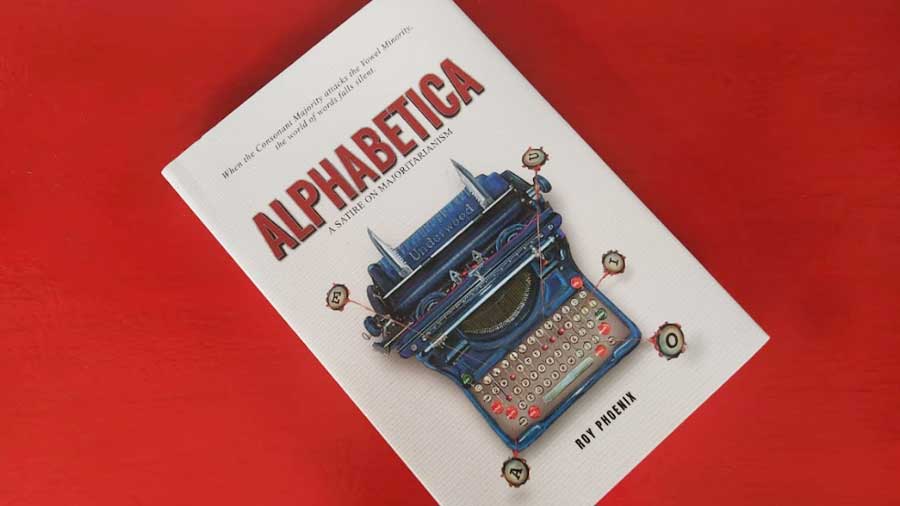For a long while it seemed the typewriter too had gone the way of humans. Not humanely human but destructively human. Like all those terrible things humans do with a poker face. Play god versus imaginary devil; impressionable mate against mate. Or holding up the bogey of some non-existent terror and all that bull.
It wasn’t a bad idea, though, especially the one about reclaiming a lost lineage, but only as long as the plan worked. But we’ll come back to that later.
As it turned out, Planet Typewriter’s key villain — Consonant “Y”, the closest to “Earthlings” in hubris — lost the plot to exile the minority Vowels to relative obscurity and got royally dumped by her comrades. Just deserts? That’s just one part of the story. There’s more; a whole lot more to Roy Phoenix’s allegorical tale, Alphabetica — A Satire On Majoritarianism, enough to move even hard-boiled cynics.
The ending means the neutral, non-partisan world of keyboard characters had survived an existential threat to their “battleground” of complementary creativity.

An illustration from the book
Vision of the typewriter as the typewriter hardly understands?
Not really. What the street doesn’t in T.S. Eliot’s Preludes, the typewriter does in Alphabetica. At least Planet Typewriter does, as it lurches from seemingly happy diversity to vicious disharmony, before a few saner denizens of this symbolic world pull things back from the brink. Bye-bye, discord.
In the end, all is forgiven, even Y — “Ypsilon, the Phoenician Chosen One” — who nearly succeeded in her insidious designs. The reunited family of Alphabeticans, Numericans, Punctuations and Signs celebrate an “extraordinary odyssey of learning” that ushers in a “new chapter of peace, love and harmony”.
That’s how the novel ends. With optimism.

Great Dictator to Luke Skywalker
It might easily have ended on a dystopian note, Orwellian in its denouement, but to the author’s credit he doesn’t let his cautionary tale overtake his faith in humanism. That’s one of the takeaways from this gripping, if quirky, chronicle of paranoia and a mistaken sense of entitlement.
It’s, however, the allegory that stands out — of the typewriter as a representative world, and the way ideas and themes such as race, genealogical purity, autocracy, exclusion, power, majoritarianism and the politics of manipulation have been woven in seamlessly, along with references to characters both real and fictional. From the 'Great Dictator' to composer Leroy Anderson and Luke Skywalker of Star Wars. Seldom has the English alphabet, and the evolution of the alphabet, been used in this way to underline how vital it is to resist all that sunders.
As the parable becomes a parallel, the canvas unfolds: tactile images, limited to the keyboard’s alphanumeric keys, but incredibly visual in range and scope. One can almost picture Adolf Hitler’s roughneck Brown Shirts going about intimidating and assaulting people in post-World War I Germany. The story reaches its climax against the backdrop of a familiar charade: the need of “Supreme Leaders” to keep “war hysteria alive at any cost”.

Rabble-rousing drug of imagined insult
Into this deadly cocktail is added the rabble-rousing drug of imagined insult. Remember, Ypsilon’s cry of lost Phoenician glory? “Our Phoenician forefathers were just twenty-two Consonants. Forget about being the minority — as they are today — the Vowels didn’t even exist at the start. They were like little dots and squiggles. All thanks to the Greeks, the Vowels surreptitiously infiltrated Alphabetica! Then, after the Romans granted them Latin citizenship, they usurped their compass and tricked them into reading the alphabet ‘left to right’ instead of ‘right to left’. The Phoenician way….”
For sometime it looked as if “Y”s trickery would succeed and she might yet pull off her heist of deceit and deception with “X”, her aerobics-obsessed Consonant mate and necessary crutch in her bid to reclaim the “holy land” of her Phoenician ancestors as Consonantica.
Had that happened, the minority Vowels would have been put in their place, relegated to the bottom, in a reconfigured keyboard dominated by the majority Consonants. Got the drift?
The featured Illustrations are by Kaushik Roy, and are extracts from 'Alphabetica — A Satire On Majoritarianism'. Buy the book here.
